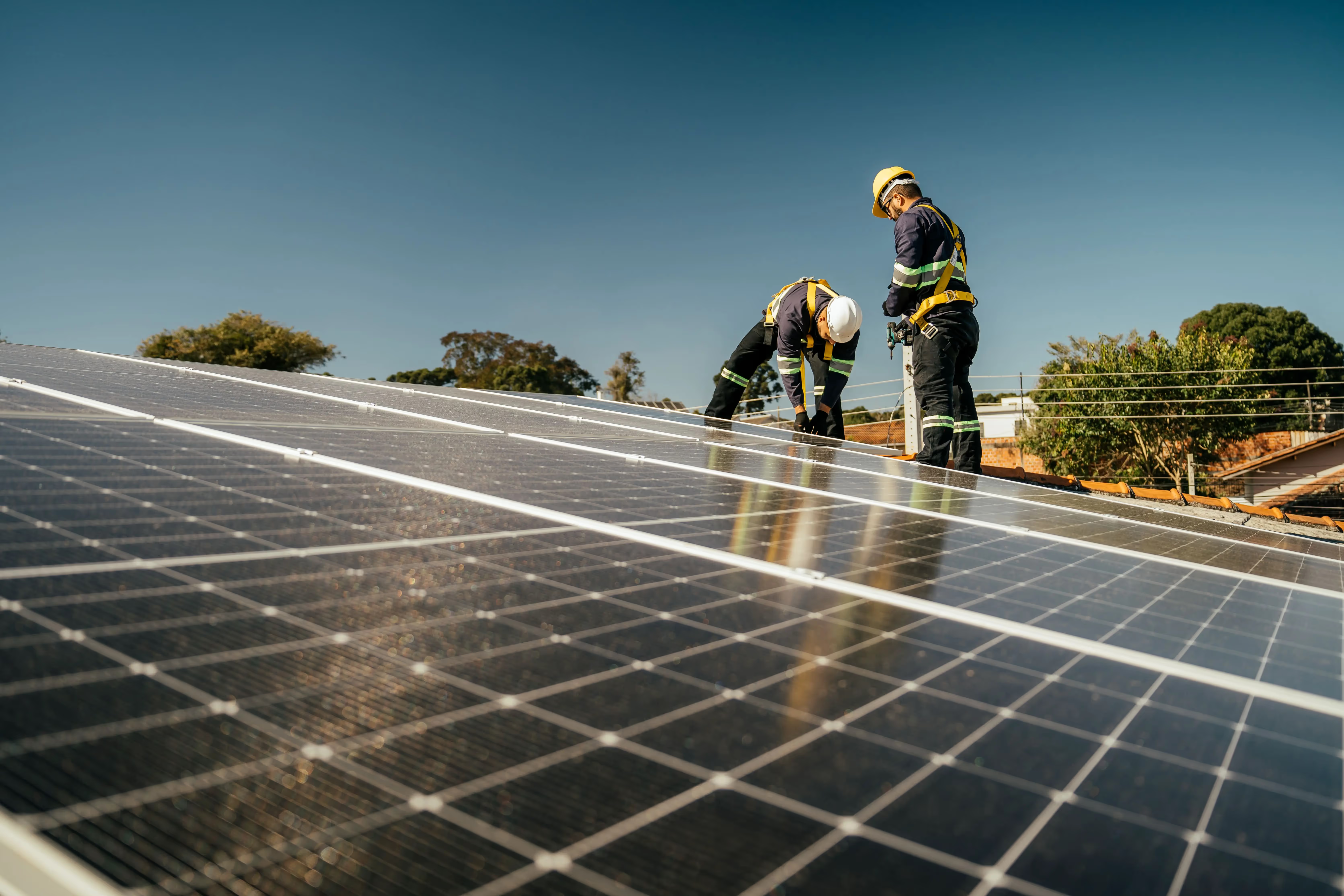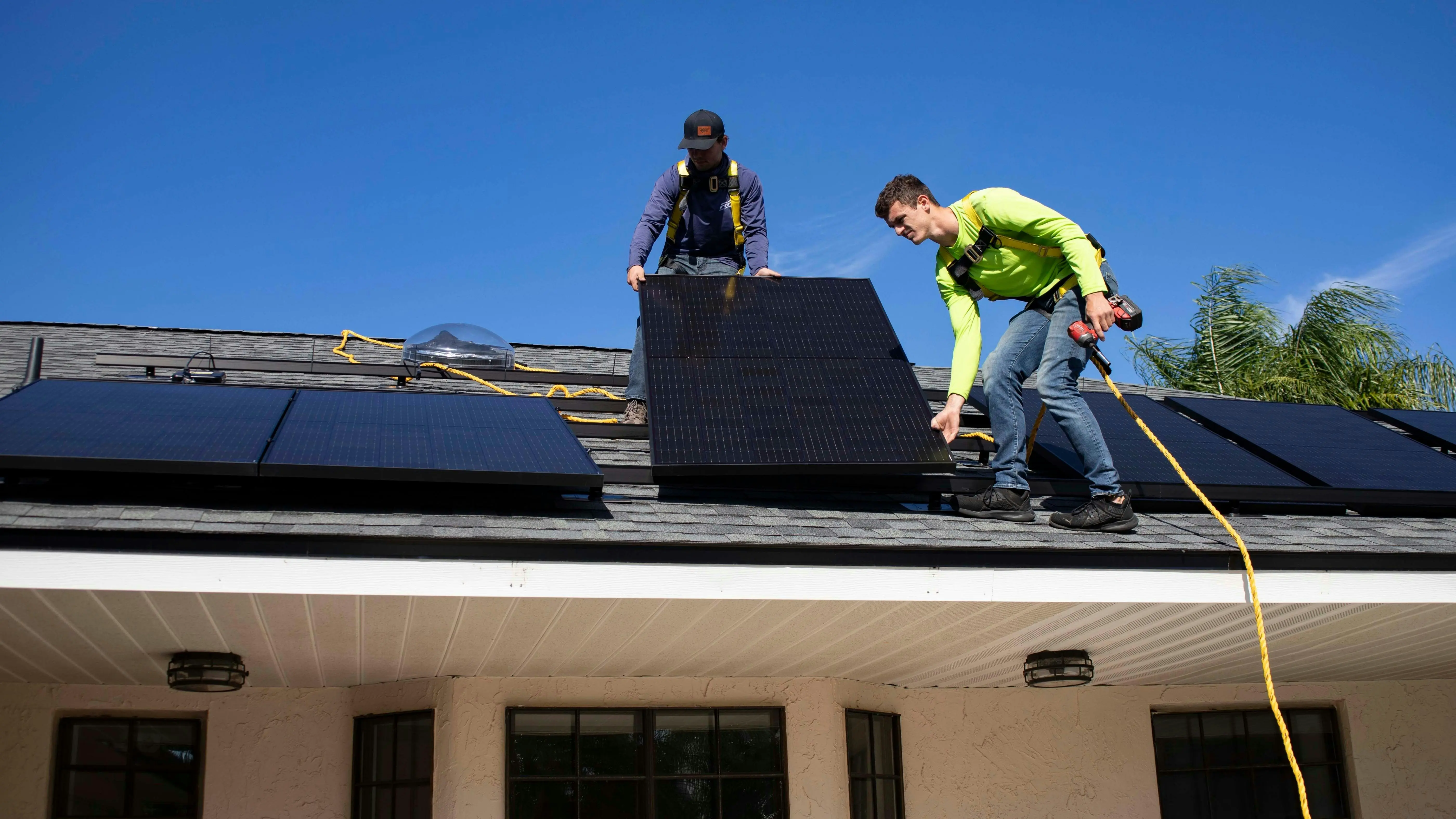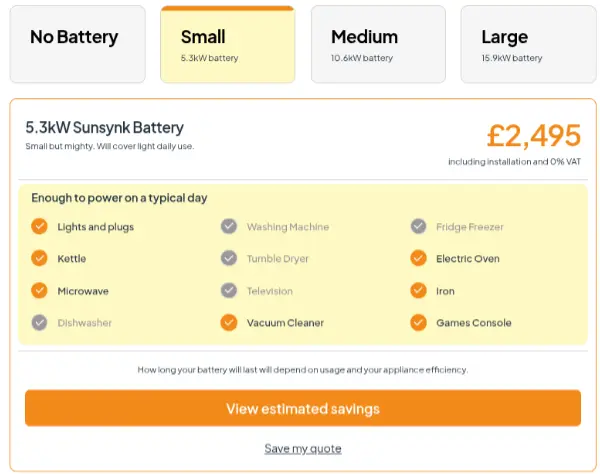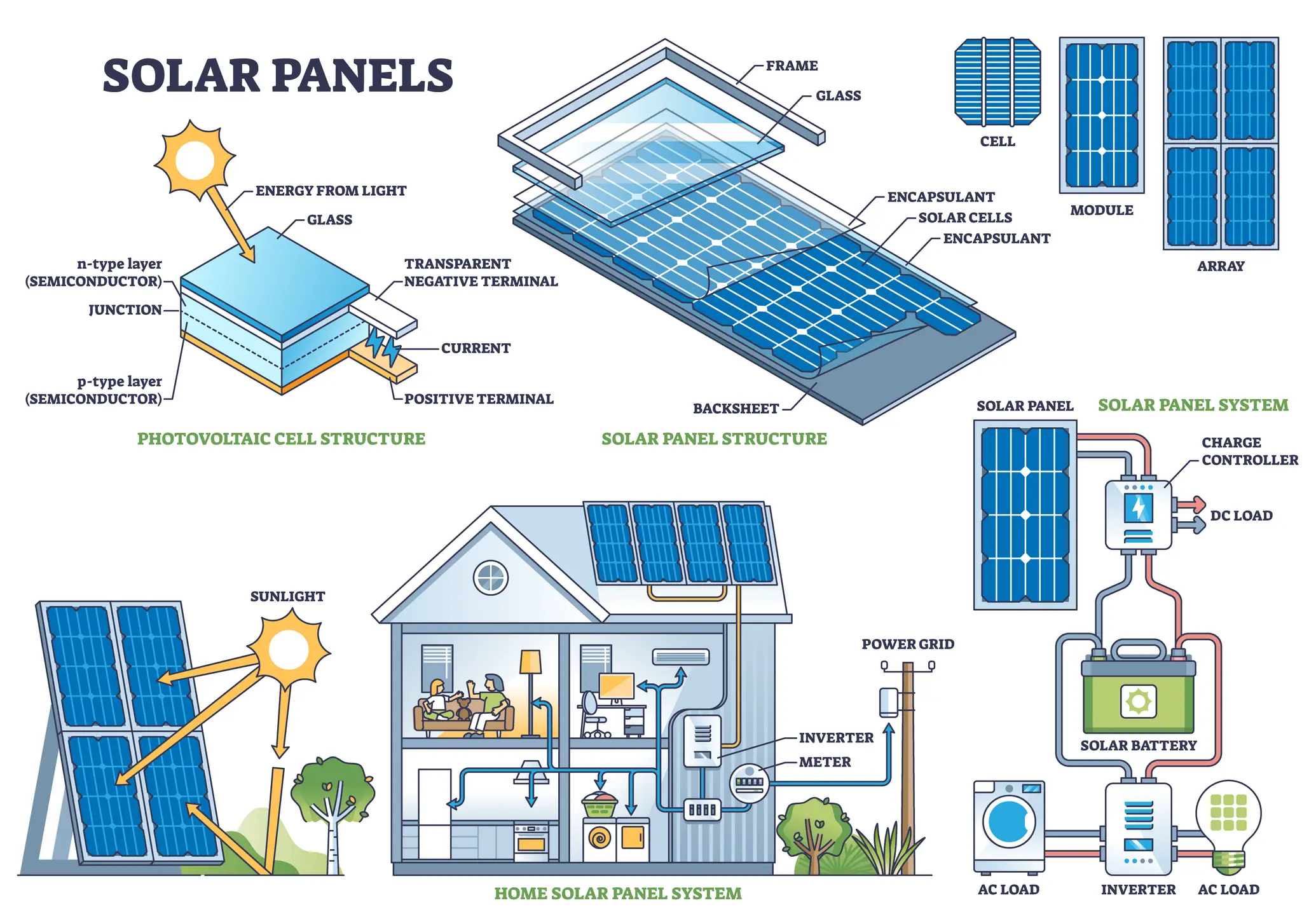
Solar panel installation is a reasonably short process. Expect the installation including commissioning by a Microgeneration Certification Scheme (MCS) installer to take
just 1 day for a relatively straightforward residential installation. For more complex or larger arrays it might take two days to have the system fully commissioned. That said the scaffold, where applicable, will normally go up a day or two before the job.
However, depending on the installer, the whole process from initial quote to installation and commissioning can take up to 5 weeks, especially is the system is over 3.68kW and requires pre-approval from the local Distribution Network Operator (DNO).
The other aspects of the process that take time, for installations of all sizes, include:
● On-site assessment where necessary
● Planning and design
● Smart Export Guarantee (SEG) application
Get quotes on your solar panel system using our clickable solar panel quote from here.
Or, to get a detailed timeline for your installation, speak to one of our solar panel experts here.

Whilst some installers require a site visit to even give an estimate, we offer an online quotation tool.
Using our clickable tool you can get a quote for the most suitable system for your property within minutes.
You’ll be able to toggle between options / additional extras including solar panel optimisers and different storage battery sizes.
Prices for a system start at just under £6,000 for a 5.16kWh 12 panel setup, not including a storage battery.

If you want to add a storage battery, there are 3 options:
● 5.3kWh: £2,495
● 10.6kWh: £3,745
● 15.9kWh: £4,995
If you don’t have a storage battery, excess electricity generated will be sold back to the grid via the SEG scheme.
You’ll then have to buy it back at a higher cost when needed. For this reason, we suggest using a 5.3kWh solar storage battery as a minimum in many cases.
To help decide if you need a solar storage battery, check out our guide covering if solar batteries are worth it here.
Or, jump over to our clickable solar panel configuration tool here and get fixed prices on-screen within 2 minutes.
Some installers will want to do an on-site assessment before offering a quote for your system.
In general, they want to ensure that solar panels are worth fitting, the roof can take the weight, and assess any nearby entities that might cause shading. A roof with a 30 degree pitch and facing due south is typically the best setup for solar panels.
If your roof isn't facing in the right direction or has excessive shading from trees, solar panels might not be suitable. By the time you’ve got an appointment booked in and completed, this part of the process is likely to take 5-7 days.
To determine if your roof is suitable for panels, read our guide to roof suitability for solar panels here.
Next, comes the design and planning stage. Your installer will also need to source materials for the most suitable system for your property and find availability in the diary.
All in all, expect this part of the process to take 1-2 weeks with the average installer.
Speak to one of our solar panel experts here to get an exact timeline for your solar panel installation.

The installation process itself only takes a couple of days. First, scaffolding needs to be erected. Typically, this takes half a day to erect and half a day at the end of the installation to take down.
For hard to access roof spaces, your installation company may need to use a scissor lift or cherry picker. Remember, if either of these pieces of machinery need to be used, it's going to add to the overall installation cost.
Once your installer has access to your roof, they'll work on installing the mounts, and fit the solar panels to them. These mounts use heavy duty anchors to ensure they can take the weight of your solar panels.
After the mounts, frames and panels are fitted, an electrical engineer will need to wire up the system. They'll need to connect the panels to the inverter, your electric board and if applicable, your solar storage battery.
Once your solar panel system is installed, it needs to be commissioned and signed off, complete with an MCS certificate.
During testing and commissioning, your solar panel installer will:
● Test each panel and inverter (if you use micro inverters, they'll be more than one)
● Test solar panel optimisers (if applicable)
● Ensure the inverter is working correctly
● Test the battery’s functionality
● Check the connection between the breaker and electricity board to ensure your system is safe
That's your solar panel installation complete!
Get a fixed price on-screen for your solar panel system - with or without a battery - by using our clickable form here.
Or, if you have any questions, speak to our solar experts here.
Try our free quote tool. You'll have your personalised quote in under a minute.